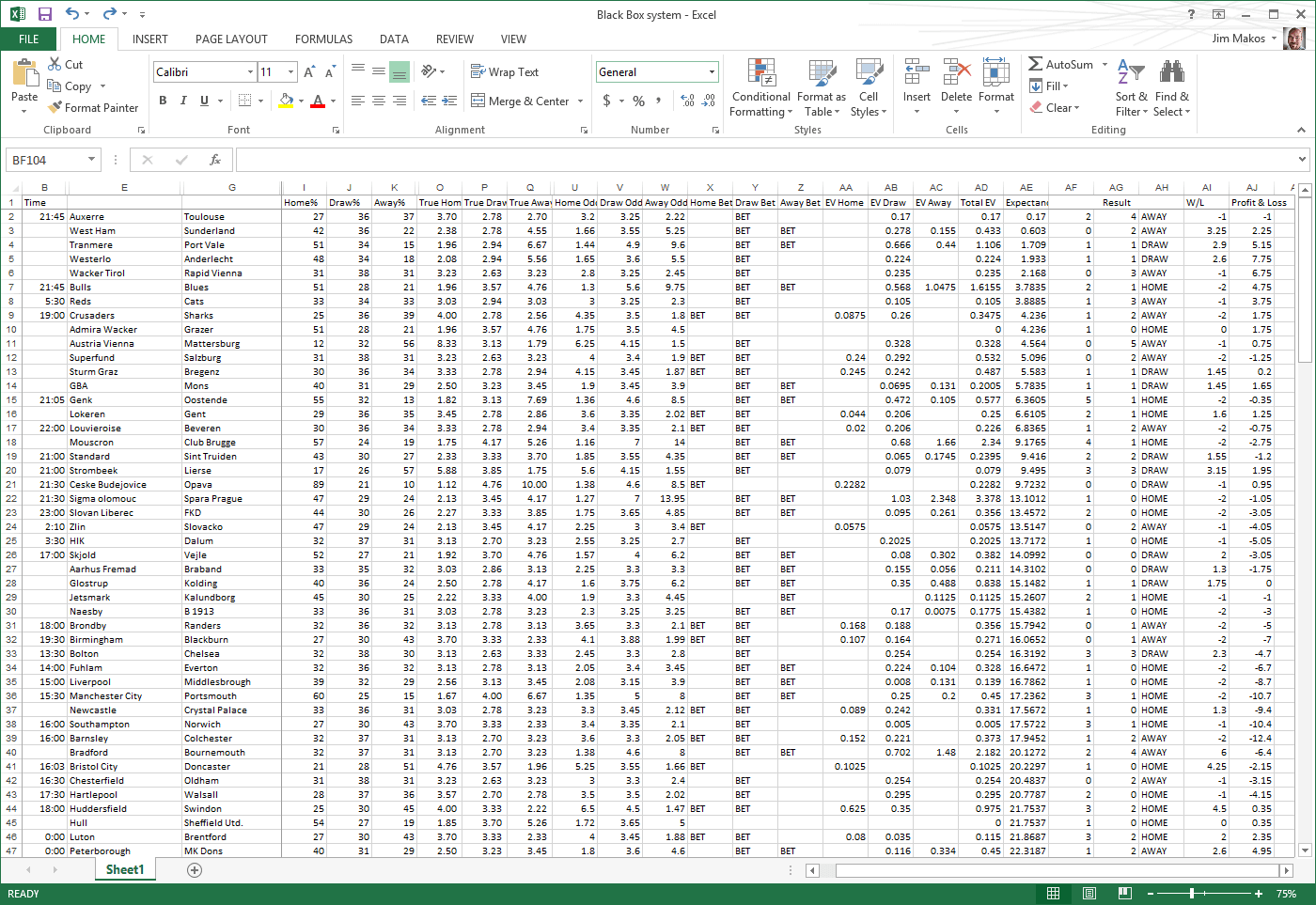- Best Way To Track Sports Bets Without
- How To Keep Track Of Your Sports Bets
- Best Way To Track Sports Bets
It’s our advice that the best way to approach a particular bet is not to approach a particular bet. Instead, we think you should approach particular games, research and make predictions on the flow and outcome of the game, and then look for which bets. You have several options when it comes to how you want to track your sports betting data. The first is the most old-school and probably the one we recommend the least – pencil and paper. The FansUnite Bet Tracker analyzes your betting patterns, history and identifies your strengths and weaknesses, displayed in an easy graphical format. Everything you need to make better. Follow me on twitter - this video I go over 4 basic sports betting strategies that when implemented will make you b. As we explain in other parts of this guide, the best sports betting strategies are about solid research and analysis, not so-called “guaranteed winning” systems. Using Sports Databases and Stats Sites to.
Sports betting is exciting. A goal in the last minute can make you win or lose. Arbitrage betting is also exciting, but in a very different way. Rush occurs during the detection and placing of bets rather than while waiting for the event outcome. Anyway, we love betting and we are proud of our ability to make profit. How much profit and how do we achieve it? Could we do it better? As in any business (professional bettors and surebettors are businessmen), we need good information to tell.
Most recreational bettors lose money. In fact, they lose a lot of money. They bet following their heart. They try to recover by betting more money in an impulsive way. And someday they hit a correct score bet with odds greater than 10 and they celebrate and forget previous losses. In fact, if you ask them how they are doing they don’t even know if they win or lose in the long term (although according to several analysts, between 90% and 98% sports bettors are losers). If they had detailed information would they continue betting? (Maybe yes…)
But professional bettors – those who take betting as an investment or a job – they must know if they win. And how much. And how, when and where. Assuming you are in this group, can you tell…

- How much did you bet?
- How much did you win?
- How many bets?
- Your average and maximum stake?
- Your average and maximum win? And loss?
- How much did you invest and cash out?
- Your ROI and yield?
- Your average arbitrage? Your maximum arbitrage?
- Your total balance? Your balance on each bookmaker?
- Your stake, return, profit or loss per bookmaker?
- The bonuses you received? The fees you paid?
- Which sports you bet on? Which markets? Which competitions or countries?
- Which sport is most profitable? And which market, competition or bookmaker?
- How many open bets do you have? Where are they?
You should.
And all these questions could be combined, and asked for a specific period of time – last week, last month, year to date, since the beginnings of time.

To answer these and many other questions we need to keep records.
Record keeping – tools
Record keeping can be done using different tools.

No record keeping. You can always use the historical data bookmakers provide. This is a good option only if you use a few bookmakers, but it’s not useful for arbitrage bettors who use 20, 30 or more bookmakers.
Pen and paper. Maybe it’s better than nothing, but not so much. You can keep track of all your bets on paper, but it will be almost unusable for reports and statistical information.
Electronic documents (word processors). While this is much better than using only pen and paper, analytical possibilities are still very limited. At least, searching for specific bets will be easier and you could transfer this information to other formats later with some work.
Electronic spreadsheets. Now you are taking it seriously. Spreadsheets are a good tool to keep your bet record. Of course, you need a well-designed record to make it easier entering information, minimise errors and enable analysis. We’ll talk about this in a moment.
Applications and databases. This is the top-stage. Applications have all the advantages of spreadsheets and can also provide a lot more possibilities, depending on their quality.
Best Way To Track Sports Bets Without
Record keeping – what to record
It would be nice to have enough information to answer all those previous questions and more. But it is also very probable that the more information you record, the more effort it will take. You need to balance the effort and the benefits. So, what to record?
The information you need to perform analysis and answer the initial questions include, for each bet:
- Bookmaker
- Date and time
- Stake and currency
- Odds
- Return and profit/loss
- Sport, country and competition
- Market
How To Keep Track Of Your Sports Bets
And you also need other information, like money transfers, just to mention one.
Record keeping – excel approach (introduction)
Let’s design an Excel sure bet tracker!
Best Way To Track Sports Bets
First of all, we must define the main entities we will use when recording bets, because it’s not only about bets. We suggest defining these main entities: bookmakers, sports, markets, countries, currencies, transaction types and bet types. Of course, you do not need a detailed entity definition for each one, but it’s good to treat them as entities with a key (or code) and the remaining information, and use references to each one on your bets. That’s a basic database design best-practice that will minimise errors and make maintenance easier.

What about bets? Besides these entities (master records) we must define bets (transactional records). We suggest defining bets and transactions so that we can also track deposits, bonuses, fees, etc. And if we want to track surebets, we must record information about which bets belong to each surebet.
What should we include for each entity? We can include as much or as little as we like. In our next article we will provide a simple but complete Excel design that will allow us to analyse:
- Money invested and cashed out
- Bonuses received
- Number of bets
- Total stake, return and profit
- Open bets (stake)
- Average and biggest bet stake, return and profit
- Average and biggest profit per bet, day, week, month or year
- ROI, Yield
- Balances at each bookmakers and wallets
- Number of bets, stake, return and profit per bookmaker
- Bonuses, fees, adjustments, transfers, per bookmaker
- Number of open bets and stakes per bookmaker
- Log of transactions and bets
- Graphs
- Profit analysis by sport and market
- Many more